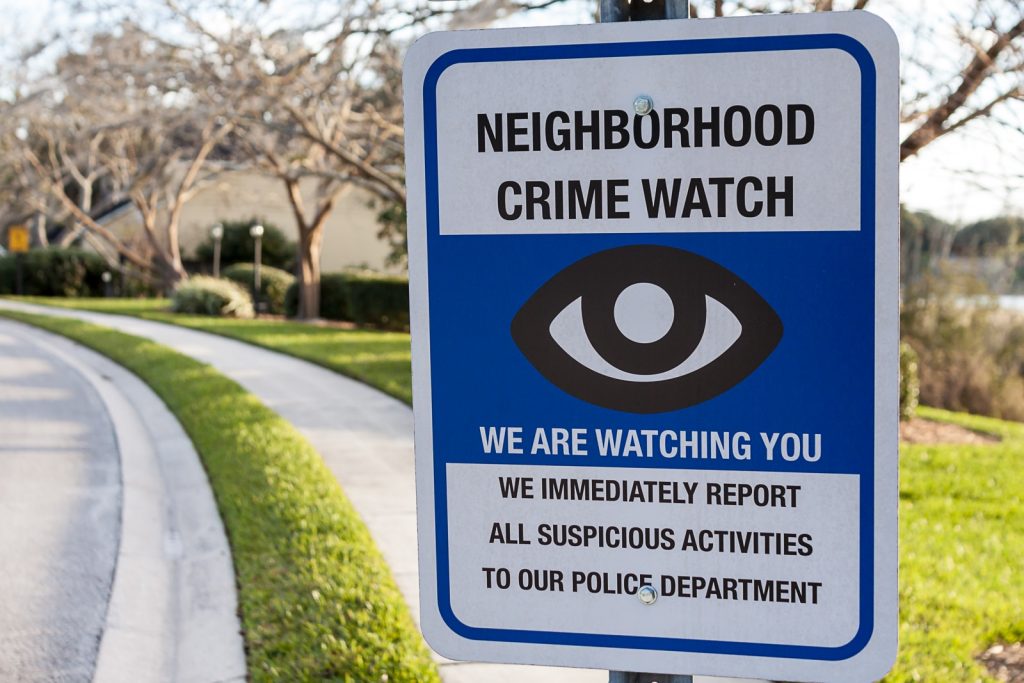REPORT ALL SUSPICIOUS ACTIVITIES TO THE POLICE.
Contact the Longwood Police Non-Emergency line at (407) 339-1297
If you plan on being out of town, you can schedule the Longwood PD check up on your home via the Home Watch Request service.
 Neighborhood Watch is one of the oldest and most effective crime prevention programs in the country, bringing citizens together with law enforcement to deter crime and make communities safer.
Neighborhood Watch is one of the oldest and most effective crime prevention programs in the country, bringing citizens together with law enforcement to deter crime and make communities safer.
Sponsored by the National Sheriffs’ Association (NSA), Neighborhood Watch can trace its roots back to the days of colonial settlements, when night watchmen patrolled the streets. The modern version of Neighborhood Watch was developed in response to requests from sheriffs and police chiefs who were looking for a crime prevention program that would involve citizens and address an increasing number of burglaries.
Launched in 1972, Neighborhood Watch counts on citizens to organize themselves and work with law enforcement to keep a trained eye and ear on their communities, while demonstrating their presence at all times of day and night. (The program took off quickly: in just ten years, NSA data showed that 12 percent of the population was involved in a Neighborhood Watch.) Neighborhood Watch works because it reduces opportunities for crime to occur; it doesn’t rely on altering or changing the criminal’s behavior or motivation.
Tips
- Work with the police or sheriff’s office. These agencies are critical to a Watch group’s credibility and are the source of necessary information and training.
- Link up with your victims’ services office to get your members trained in helping victims of crime.
- Hold regular meetings to help residents get to know each other and to decide upon program strategies and activities.
- Consider linking with an existing organization, such as a citizens’ association, community development office, tenants’ association, or housing authority. They may be able to provide an existing infrastructure you can use.
- Canvass door-to-door to recruit members.
- Ask people who seldom leave their homes to be “window watchers,” looking out for children and reporting any unusual activities in the neighborhood.
- Translate crime and drug prevention materials into Spanish or other languages needed by non-English speakers in your community. If necessary, have a translator at meetings.
- Sponsor a crime and drug prevention fair at a church hall, temple, shopping mall, or community center.
- Gather the facts about crime in your neighborhood. Check police reports, conduct victimization surveys, and learn residents’ perceptions about crimes. Often, residents’ opinions are not supported by facts, and accurate information can reduce the fear of crime.
- Physical conditions like abandoned cars or overgrown vacant lots contribute to crime. Sponsor cleanups, encourage residents to beautify the area, and ask them to turn on outdoor lights at night.
- Work with small businesses to repair rundown storefronts, clean up littered streets, and create jobs for young people.
- Start a block parent program to help children cope with emergencies while walking to and from school or playing in the area.
- Emphasize that Watch groups are not vigilantes and should not assume the role of the police. Their duty is to ask neighbors to be alert, observant, and caring—and to report suspicious activity or crimes immediately to the police.
